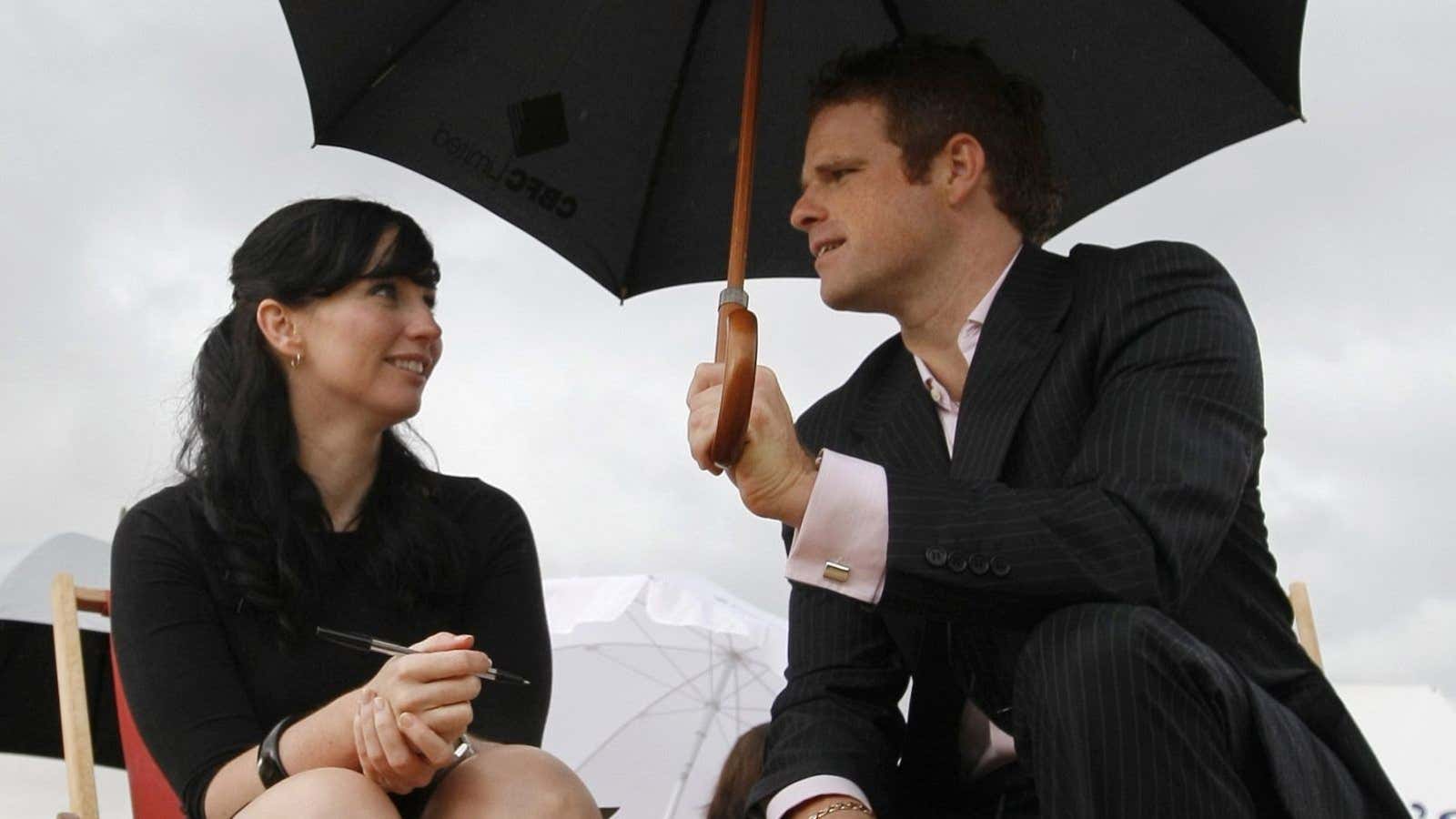It seems we’re now inviting Donald Trump into the bedroom. In a normal election year, a spike of partisan polarization in people’s personal profiles tends to fade out over time. This was not a normal election year.
eHarmony, which has 30 million members, has observed precisely the opposite response, said CEO Grant Langston in Refinery29. “Typically, when you have an election year, any kind of political activity wanes when the election is over,” he said. “That is not happening.” Last summer, men and women answering the political affiliation question on their dating profile stood at 24.6% and 16.5% respectively. It’s essentially tripled in 2017 compared with the same period last year.
It’s no longer uncommon to see profiles that say: “Trump supporters swipe left.” The effect is rippling across dating apps. “Not only are we seeing users increasingly identify as one belief or another but also making this public information on their profiles,” wrote Devin Colleran, a spokesperson for OkCupid, by email. “We have seen a huge spike in users identifying as liberal on their profile since the election. Interestingly, also have seen a rise of “Centrists” which are users indicating that they don’t want to affiliate with either party.”
Since January, women on OkCupid have not been shy about broadcasting where they stand. Captions with ‘women’ or ‘womens’ in the text are 50 times more common than the the same period last year, and ‘Women’s March’ was the hottest new photo-caption term after the protest, according to the dating app.
Partisanship is not just breaking along geographical fault lines with urbanites backing Hillary, and rural residents standing behind Trump. It’s gender as well. Single men and women, in particular, are becoming politically estranged. Unmarried women have now become more politically liberal and Democratic, while single men, especially whites, have skewed Republican. The gender gap overall is widening. In the 1972 and 1976 presidential elections, men and women voted for Republicans and Democrats in roughly equal numbers. Since 1980, women, on average, have been eight percentage points more likely to back Democratic candidates over Republicans in every presidential election since 1980, reports Pew. In 2016, that spread widened to 11 percentage points with women favoring Hillary Clinton 54% to 42% (although among whites, 53% of women broke for Trump, a number that rose even higher among those without a college degree).
That polarization has lead to publicized splits, romantic and otherwise. One 2017 Reuters/Ipso poll found that 13% of respondents had ended a relationship with a family member or close friend over the election. That number rose to 22% among millennials, an April 2017 poll by Wakefield Research found. Stories of college students and married septuagenarian couples breaking up over the election have appeared in the press, and at least one high-profile “Trump Divorce” has riled the social scene in Palm Beach, Florida.
But lest one think sorting ourselves into politically harmonious couples and communities will smooth out our civic conflict, think again. Decades of political experience suggests writing off groups as irredeemable (or un-datable) could be counterproductive. Venezuela, now on its way to becoming the world’s newest dictatorship, has endured a similar cultural polarization between supporters of the authoritarian regime of socialist Hugo Chávez and the opposition. Journalist Andrés Miguel Rondón laments those opposing Chávez could not “stop pontificating about how stupid Chavismo was, not only to international friends but also to Chavez’s electoral base,” he wrote. “ ‘Really, this guy? Are you nuts? You must be nuts,’ we’d say.” As a result, “whole generations were split in two [and] a sense of shared culture was wiped out.”
It’s understandable that people want their most intimate relationships to exclude people who support policies they consider wrong or abhorrent. Yet as Americans retreat further into political camps, our ability to connect or communicate with one other erodes. In a 2017 survey of 7,000 men and women in the US, only 39% of women and 62% of men said they felt comfortable dating someone with radically different political views, according to the dating app Plenty of Fish. Spurning people whose political views may diverge from may make for better dates, but it could drive our society even further apart.
